READY TO GET STARTED?
REQUEST A FREE ESTIMATE
Fill out the form below or call (888) 466-7849 for a free, no-obligation estimate.
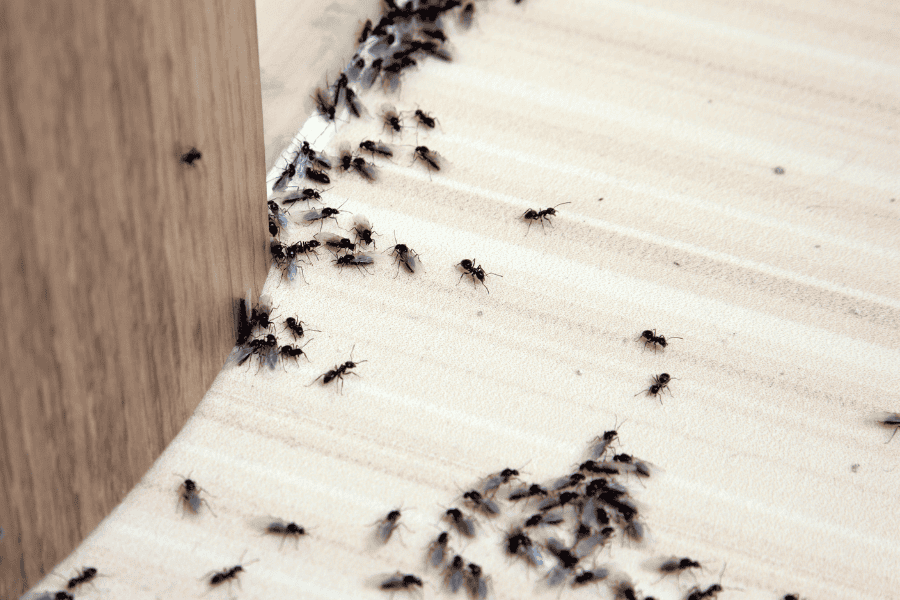
Ants are small, but they can cause big frustrations in your Miami home. Whether it’s Argentine ants marching through your kitchen or fire ants invading your yard, Miami’s warm, humid climate makes the city a prime destination for these pests. Traditional pest control methods often involve harmful chemicals, but eco-friendly ant control alternatives provide effective solutions that are not harmful for your home, health, and the environment.
Here’s how Miami residents can keep ants at bay with natural, green pest control methods that work.
Ants are always on the lookout for food, water, and shelter. Miami’s year-round warm weather, combined with the rainy season, creates the perfect environment for ants to thrive. They’re often attracted to crumbs, leaks, or even the smallest cracks in your home’s exterior.
Understanding which ant species you’re dealing with is key to effective pest control. Here are some common ants in Miami:
Using natural substances to repel ants is a great first step to keeping them out of your home:
Eco-friendly baits are a great way to target the colony itself. Mix sugar and boric acid into a paste and place it near ant trails. Worker ants will carry it back to the colony, slowly eradicating the infestation.
Diatomaceous earth is a natural powder that can be sprinkled around your Miami home. It dehydrates ants and works effectively in places like baseboards and entryways.
Ants are attracted to crumbs and food residue. Ensure your Miami home is spotless by:
Fix leaking pipes and faucets in your Miami home and dry up moisture in kitchens and bathrooms. Ants are always on the lookout for water sources and removing them will discourage them from entering.
Ants can sneak into your home through the smallest gaps. Be sure to:
Miami’s tropical environment provides a perfect place for ants to thrive. Here’s how to keep them out:
Certain plants can naturally repel ants while adding beauty to your home. Consider growing:
Miami’s warm climate makes ant infestations a common issue, but eco-friendly pest control solutions provide a greener way to protect your home. By using natural deterrents, sealing entry points, and focusing on prevention, you can keep your Miami home ant-free without relying on harmful chemicals. If you’re ready for a green pest control plan, contact a local pest control company for a free estimate.

As Florida heads into 2025, homeowners will face an evolving pest landscape due to rising temperatures and increased rainfall. These changes are creating new challenges, but with the right information and green pest control solutions, you can protect your property from unwanted invaders while keeping your environmental impact low.
Warmer temperatures are accelerating pest breeding cycles, leading to larger populations of mosquitoes, cockroaches, and other pests. Milder winters also mean pests can survive year-round, requiring more frequent eco-friendly pest control efforts. To stay ahead, keep your home free of standing water and maintain clean, dry spaces, reducing the need for chemical treatments.
More rain creates ideal conditions for pests like termites, mosquitoes, and moisture-loving ants. Ensure gutters are clean, water collection areas are drained, and use dehumidifiers to keep humidity-loving pests at bay. Green pest control methods, like natural dehumidifiers and drainage solutions, help prevent pest problems while being gentle on the environment.
New invaders are making their way into Florida, including the Brown Marmorated Stink Bug, Tropical Bed Bug, and Cactus Moth . These pests pose unique challenges and require specialized control methods. By focusing on eco-friendly pest control, you can reduce reliance on harmful chemicals and take advantage of natural deterrents to keep these pests in check.
Familiar pests like cockroaches, ants, and rodents are adapting to the changing climate. Resistant cockroach strains, aggressive Argentine ants, and rodents seeking shelter indoors are just a few examples of how traditional pests continue to wreak havoc on our Florida homes! To handle these pest challenges, consider green pest control options like bait stations, traps, and natural repellents, which take the environment and your home into consideration.
Opt for natural repellents like essential oils, and preventive measures like sealing cracks and maintaining a clean home. These green pest control options effectively manage pests without harming your family or the environment. By adopting sustainable practices, you can keep pests at bay while reducing your ecological footprint.
As Florida’s climate changes, staying informed and proactive is key. Keep up with pest trends, partner with professional green pest control companies, and invest in regular home maintenance and prevention to protect your property in an eco-conscious way.
If you’ve noticed an influx of pests around your property this New Year, consider reaching out to a local pest control company near you. These professionals will provide you with an inspection and their treatment recommendations based on your pest situation.

As temperatures drop in Florida during December, homeowners often find themselves facing an increase in rodent activity. While Florida’s warm climate means pests like rats and mice are a year-round concern, winter months bring a few specific challenges that make Florida rodents more of a problem. Here’s why December is a particularly tricky time for rodent control in the Sunshine State.
Even though Florida doesn’t experience extreme winter weather, the cooler temperatures of December still drive rodents indoors. Rats, mice, and squirrels are all looking for warmth, food, and shelter as their natural outdoor food sources become scarcer and the air chills. Your home, with its heat and accessible food, becomes an attractive target.
A small rodent infestation in December can rapidly turn into a big problem. Mice and rats breed quickly—mice can reproduce as often as every 3 weeks! If you don’t address the issue right away, a handful of rodents can turn into dozens, causing more damage and creating more health risks as the season goes on.
Rodents are notorious for chewing on electrical wires, insulation, and even structural elements of your home. This can result in costly repairs and pose fire hazards. In addition to physical damage, rodents are carriers of diseases like salmonella, leptospirosis, and hantavirus. When they enter your home, they bring these health risks along with them.
As the days get shorter and the nights get longer in December, rodents become more active after dark. They often search for food during nighttime hours when there’s less human activity. If you’ve noticed strange noises or signs of gnawing at night, it could be a sign of an infestation.
The best time to deal with a potential rodent problem is before it gets out of hand. In December, rodent-proofing your home is crucial. Sealing entry points, setting traps, and eliminating food sources are all effective measures to keep rodents out. The earlier you address the problem, the easier and more cost-effective it will be to eliminate.
December presents unique challenges for Florida homeowners when it comes to rodent control. As Florida rodents seek shelter from the cooler weather, they can cause damage, spread diseases, and multiply quickly. By being proactive in rodent prevention, you can ensure your home stays clean and rodent-free throughout the winter months. If you encounter persistent rodent issues, consider contacting a local pest control company for expert assistance and tailored solutions to protect your home.

As the cooler weather settles in here in Pompano, homeowners may notice an increase in spider activity around their homes. While these eight-legged creatures can be unsettling, understanding their behavior and how to manage them can help keep your home comfortable and pest-free.
As temperatures drop, many insects become less active, which can lead spiders to seek shelter indoors where it’s warmer and food is more readily available. Spiders are natural predators, and they often move inside to find their next meal, which may include other pests hiding in your home.
Spiders are excellent at finding cozy spots to spin their webs. Here are some common areas you should check around your home:
While spiders play a beneficial role in controlling insect populations, their presence in your home may not always be welcome. By staying proactive and keeping an eye out for spider activity, you can maintain a comfortable living space in Pompano. Embrace the cooler weather and take these steps to ensure your home remains a cozy refuge—without any unexpected visitors!
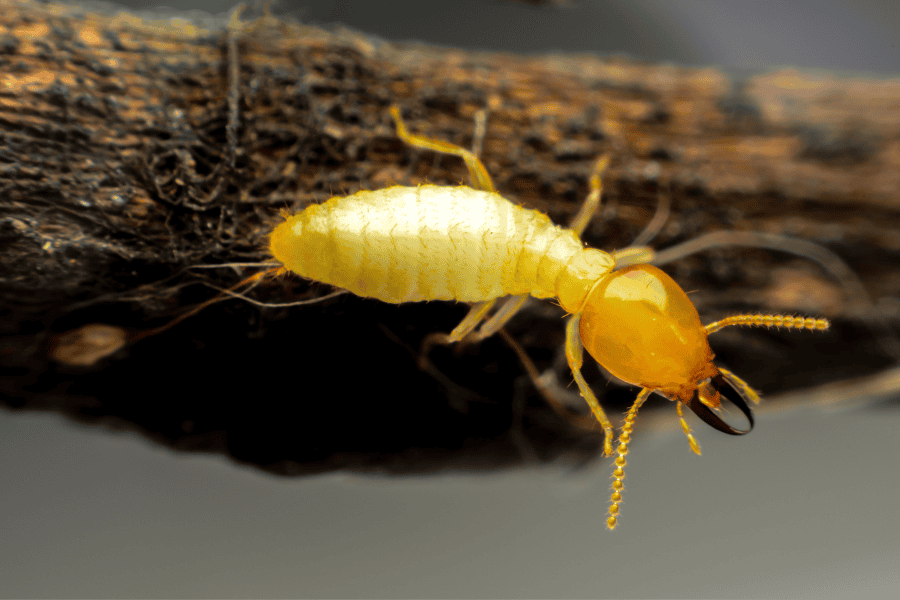
Living in beautiful Broward County comes with its perks—sunshine, beaches, and vibrant neighborhoods. However, it also means dealing with a variety of pests that can invade your home. Understanding the common pest problems in the area can help you take proactive measures to keep your home pest-free. Here’s what every homeowner should know about common pests in Broward!
Ants are among the most common pests in Broward. Whether it’s fire ants, sugar ants, or carpenter ants, these little critters can be quite a nuisance. They often enter homes in search of food or shelter. To keep them at bay, make sure to seal up any food in airtight containers, clean up spills promptly, and seal cracks around your home.
Termites can cause significant damage to your home if not caught early. In Broward, the warm climate makes it an ideal environment for these wood-eating insects. Regular inspections by a pest control professional can help you catch any termite activity before it turns into a major problem. Look for signs like mud tubes or discarded wings around your home.
Rodents, including rats and mice, are another common issue. They can enter through small gaps and reproduce quickly, leading to larger infestations. Keeping your home clean and clutter-free is key. Make sure to store food in sealed containers and repair any holes in walls or foundations to deter these furry intruders.
Cockroaches thrive in warm, humid environments, making Broward an ideal habitat. These pests are not only creepy but can also pose health risks. To prevent an infestation, keep your kitchen and dining areas clean, fix leaky pipes, and ensure all food is stored properly.
While mosquitoes are more of an outdoor issue, they can become a significant problem during certain times of the year. Standing water is a breeding ground for these pests, so it’s important to eliminate any stagnant water around your yard. Consider using repellents or citronella candles when enjoying your outdoor space.
For pet owners, fleas and ticks can be a major concern. These pests can hitch a ride on your furry friends and quickly infest your home. Regular grooming and using preventative treatments for your pets can help deter these pests. Additionally, vacuuming frequently and washing pet bedding can minimize the risk of an infestation.
Being aware of these common pests in Broward is the first step toward prevention. Regular maintenance can go a long way towards keeping your home pest-free. If you find yourself facing a pest issue, don’t hesitate to reach out to a local pest control professional. They can provide tailored solutions to keep your home pest-free and comfortable.
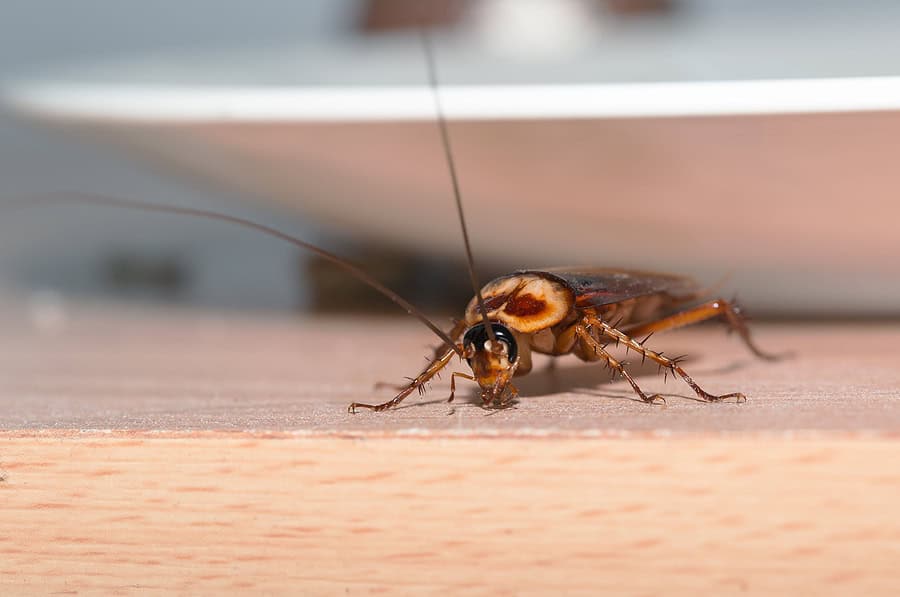
Cockroaches are resilient pests that thrive in Miami’s warm and humid climate. Understanding the types of roaches in Miami and what attracts them can help residents manage these unwelcome guests effectively.
Roaches are a common nuisance in Miami, thriving in both urban and natural environments. The city’s mix of heat and moisture creates perfect breeding conditions, making awareness and proactive management essential.
Understanding their habits is crucial for homeowners. Roaches are nocturnal, which means they’re more active at night, making them harder to spot during the day. Regular inspections of your home can help catch an infestation early. Look for droppings, egg cases, and the musty odor they often leave behind.
By staying vigilant and implementing preventive measures, such as sealing entry points and maintaining cleanliness, you can significantly reduce the likelihood of a roach invasion.
The tropical climate and abundant food sources contribute to Miami’s roach problem. With plenty of hiding spots and easy access to water, cockroaches find ideal living conditions in kitchens, bathrooms, and cluttered areas.
Additionally, the warmth and humidity of the region create a year-round haven for these pests, making it crucial for homeowners to stay proactive. By maintaining a clean and organized environment, you can significantly reduce the chances of attracting these unwelcome pets into your home.
Roaches carry bacteria such as Salmonella and E. coli, which can contaminate food and surfaces. They also produce allergens that can trigger asthma and allergies, particularly in sensitive individuals. The presence of these pests not only poses health risks but can also lead to increased anxiety for homeowners, as the thought of sharing space with roaches is unsettling.
Additionally, roaches can reproduce rapidly, turning a small problem into a significant infestation in a short time. Their ability to squeeze through tiny cracks and crevices means that they can easily invade homes, making early detection and prevention even more crucial. By maintaining a clean environment and addressing any signs of an infestation promptly, you can help protect your family’s health and ensure a more comfortable living space.
Sanitation: Keeping kitchens and bathrooms clean is crucial in deterring roaches. Wipe down surfaces regularly, ensuring that crumbs and spills are promptly cleaned. Store food in airtight containers to prevent access, and don’t forget to seal pet food as well. Regularly empty trash bins, ideally daily, and ensure that garbage is stored in sealed containers. This minimizes the attractive scents that can draw roaches into your home.
Seal Entry Points: Roaches are experts at squeezing through the tiniest of openings. Use caulk to close gaps and cracks around windows, doors, and the foundation of your home. Pay special attention to areas where plumbing and electrical lines enter the building, as these can often be overlooked but serve as highways for pests. Installing door sweeps can also help roaches and other household pests
Reduce Clutter: A tidy environment is less inviting to roaches. Declutter your living spaces, especially basements, attics, and storage areas where boxes and unused items can create cozy hiding spots. Keep items off the floor and use clear bins for storage, allowing you to quickly spot any signs of an infestation. Regularly checking and organizing these areas not only keeps your home looking great but also helps you stay one step ahead of any potential roach issues.
Using traps, baits, and insecticidal sprays can help manage infestations, but hiring professional pest control is often the most effective solution. Pest experts in Miami understand the unique challenges posed by the local climate and can address infestations comprehensively and quickly.
Roaches are a persistent challenge for homeowners, especially given the city’s warm, humid environment that fosters their growth. However, with proactive measures and professional help, they can be managed effectively. Stay vigilant and maintain cleanliness to keep your home roach-free. If you encounter a roach problem, don’t hesitate to reach out to local pest control experts for tailored solutions for your roach problem. With the right approach, you can reclaim your space from these unwelcome intruders.
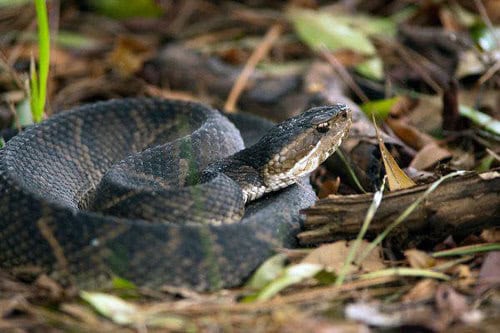
Florida, known for its sunny beaches and bustling theme parks, is also home to a vibrant array of wildlife. Among these creatures are the snakes that thrive in the state’s warm climate. Understanding and navigating the snake season in Florida is crucial for homeowners and business owners. In this guide, we will explore the ins and outs of snake season, highlight common species, and offer practical advice on how to safely coexist with these fascinating reptiles.
Snake season in Florida refers to the period when snakes are most active. This typically aligns with the warmer months, from April through October. During these times, snakes come out of hibernation to hunt, mate, and bask in the sun. The peak of this activity often occurs in the summer when temperatures are at their highest. Understanding this timeframe is essential for anyone living or working in Florida, as it helps anticipate and prepare for potential snake encounters.
Knowing when snake season starts and peaks can significantly impact how residents and businesses prepare. The increase in snake activity means that more encounters are likely, especially in areas close to natural habitats. Being informed can help homeowners secure their properties and businesses implement safety measures to protect their premises.
The Eastern Diamondback Rattlesnake, one of the most iconic snakes in Florida, is easily recognizable by its distinctive diamond pattern. This venomous species prefers dry, sandy, and mixed forest habitats. Awareness of its presence and behavior is vital, as its bite can be dangerous.
Eastern diamondbacks are generally shy and prefer to avoid human contact. However, they are known to defend themselves vigorously if threatened. Recognizing their distinctive rattle and understanding their preferred environments can help minimize the risk of encounters.
Also known as the cottonmouth, the water moccasin is another venomous snake commonly found in Florida. This species thrives in wetland areas, such as swamps and lakes. Known for its aggressive defensive behavior, the Water Moccasin can be identified by its thick body and a distinctive white mouth.
Water moccasins often bask near water and can be found swimming across ponds and streams. They are known for their potent venom but are generally non-aggressive unless provoked. Understanding their habits and habitats can help reduce the chance of an unpleasant encounter.
Florida is also home to a variety of non-venomous snakes, including the black racer and the corn snake. These species play a crucial role in controlling pest populations and maintaining ecological balance. While non-venomous, they can still startle unsuspecting individuals.
Non-venomous snakes often adapt well to urban environments and can be found in gardens, parks, and even residential areas. Recognizing the beneficial role they play can encourage coexistence and reduce unnecessary fear.
Weather significantly influences snake behavior. Warmer temperatures increase their activity levels as they seek out food and mates. Conversely, during cooler months, many snake species become less active, often entering a state of brumation, similar to hibernation.
Understanding these patterns can help predict when snakes are more likely to be encountered. For example, after a rainstorm, snakes may be more active as they hunt and explore.
The environment plays a crucial role in snake behavior. Factors such as habitat availability, food sources, and human encroachment affect where and when snakes are active. Urban development can sometimes force snakes closer to human dwellings as they search for food and shelter.
Being aware of these factors allows for better preparation and management of snake encounters. Simple measures like keeping yards tidy and securing food waste can significantly reduce the attraction for snakes.
Homeowners can take several steps to minimize snake encounters. Regularly mowing the lawn, trimming bushes, and removing debris can eliminate places for snakes to hide. It’s also wise to seal any gaps in buildings to prevent snakes from entering homes.
Educating family members about common snake species and what to do if one is spotted can further ensure safety. The use of snake repellents and maintaining clear paths around the property can also deter snakes from venturing too close.
Businesses, especially those with outdoor areas, should implement measures to prevent snake encounters. Regular inspections and maintenance of outdoor spaces can help identify potential snake habitats. Providing staff training on snake awareness and response can also enhance safety.
For businesses dealing with food, ensuring proper waste management practices prevent attracting rodents—a primary food source for many snakes. Installing fencing and signage can help keep both customers and wildlife safe.
Pest control professionals play a critical role during snake season. Armed with the knowledge and skills to handle various snake species, they provide essential services such as inspections, snake-proofing, removal of unwanted snakes, and repellant services.
These professionals can offer tailored solutions based on specific needs, ensuring that homes and businesses remain safe and snake-free. Their expertise is invaluable in creating long-term strategies for managing snake activity.
Pest control services often include preventive measures, identifying potential snake habitats, and advising on property modifications. They can also engage in direct snake removal, ensuring humane handling of these creatures.
Providing educational resources and support, pest control professionals act as a vital bridge between humans and nature, promoting coexistence and protection.
Understanding snake season in Florida and how to coexist with these fascinating creatures is vital for residents, businesses, and pest control professionals. By recognizing common snake species, their behavior, and taking proactive measures, we can safely share our beautiful state with them.
For further guidance, consider consulting with local pest control experts who can provide tailored advice and support.
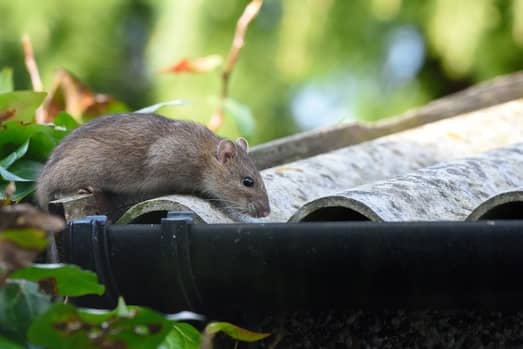
Living in Bonita Springs offers beautiful weather and stunning scenery, but it also comes with the challenge of managing pests—especially rodents. These unwelcome guests can cause damage to your home and pose health risks. Understanding successful methods in effectively dealing with rodents is essential for maintaining a safe and comfortable living environment.
In Bonita Springs, homeowners often encounter a few common rodent species:
Identifying a rodent problem early can save you significant headaches down the line. Look for these signs:
Seal Entry Points: Rodents can enter your home through surprisingly small gaps. Inspect your property for cracks and openings around doors, windows, and foundations. Use caulk or weatherstripping to seal these entry points.
Maintain a Clean Environment: Keeping your home clean is one of the most effective deterrents. Regularly vacuum and wipe down surfaces to eliminate food particles. Store food in airtight containers and promptly clean up spills.
Manage Outdoor Spaces: Trim trees and shrubs away from your home to prevent rodents from using them as access points. Keep your yard tidy, removing debris and piles of leaves that can provide hiding spots.
Use Natural Deterrents: Consider using natural repellents, such as peppermint oil, which can deter mice and rats. Soaking cotton balls in peppermint oil and placing them in areas where you suspect rodent activity can help keep them away from your property.
Professional Help: If the infestation is severe or you’re unsure how to handle it, calling a pest control professional is the best option. They can assess the situation and implement effective strategies to eliminate rodents properly.
Dealing with rodents in Bonita Springs requires vigilance and proactive measures. By sealing entry points, maintaining cleanliness, and utilizing effective rodent control methods, you can protect your home from these critters.
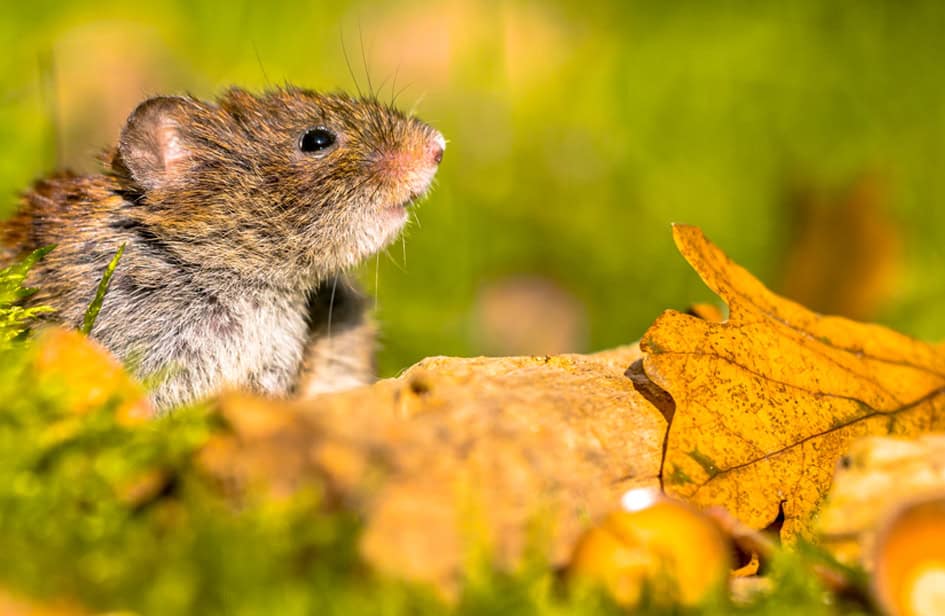
As fall settles in across Florida, homeowners are met with cooler temperatures and a notable increase in pests such as rodents, centipedes, silverfish and cockroaches seeking shelter from the changing weather. With their relentless pursuit of warmth and food, it’s crucial to implement practical strategies to keep these uninvited guests out. Discover our effective pest prevention techniques to help you prevent fall pests!
Despite the cooling temperatures, many pests remain active during fall as they search for warmth, food, and moisture. Understanding their behavior is essential for preventing their attempts to invade your home. Small cracks, crevices, and the persistent humidity can create hidden entry points, making it vital to thoroughly inspect your home for vulnerabilities. Being proactive now can save you from larger infestations later.
Seal cracks and gaps with caulking and weather stripping, particularly around doors and windows. Installing door sweeps can significantly reduce potential entry points, preventing pests from slipping through unnoticed.
Clear away debris outside and organize storage areas inside. This not only eliminates potential nesting sites for pests but also creates a more inviting atmosphere for you and your family.
Regularly vacuum and wipe down surfaces to remove food attractants that can lure pests into your home. Use sealed containers for food storage and keep trash bins emptied and covered to minimize odors that might attract critters.
Consider using essential oils like peppermint and tea tree oil, known for their pest-repelling properties. Mix a few drops of water and spray around your home’s entry points. Additionally, food-grade diatomaceous earth can effectively control crawling insects by dehydrating them; simply apply it in areas where pests are commonly spotted.
Planting marigolds, lavender, or mint around your home not only enhances your landscape but also serves as a natural deterrent to pests. These plants emit scents that repel many common insects, creating a more pest-resistant environment.
To control silverfish, maintain low humidity levels with dehumidifiers and ensure proper ventilation. Regularly declutter areas where they may hide and consider using adhesive traps to monitor and reduce their population.
To effectively manage rodents, store food in sealed containers, keep pet food stored away, and regularly clean up crumbs and spills. Additionally, sealing gaps and entry points in walls and foundations can help prevent them from entering your home. For severe infestations, consulting a pest control professional may be necessary to ensure a thorough solution.
Keep your home tidy and free of clutter, as this reduces hiding spots. Seal cracks and gaps in walls and foundations to limit their entry and consider using insecticides in severe infestations. Regularly checking for moisture issues can also help deter these pests.
To combat roaches, keep food stored in airtight containers, maintain a clean living space, and promptly address any leaks or moisture issues. Additionally, using gel baits and traps can help reduce their population. If the infestation persists, consider contacting a pest control professional for more comprehensive treatment options.
Try to reduce chemical use by adopting integrated pest management (IPM) practices, which focus on long-term prevention using various methods. Supporting local wildlife by avoiding broad pesticides and choosing targeted treatments is not only better for the environment but also helps create a healthier ecosystem.
Pest prevention is an ongoing effort, especially in Florida’s climate. By combining DIY strategies, natural deterrents, and professional help, you can ensure your home remains a pest-free sanctuary. For personalized guidance tailored to your specific situation, consider scheduling a consultation with a pest control expert. These professionals will set you up with a thorough inspection and the best treatment and prevention plan for your Florida home.